Medically reviewed by Dr. Ramesh Gaddam, M.D. — Written by Sumalatha, D.N.H.E
When taking nitrofurantoin (Macrodantin), it’s important to watch what you eat to help the medication work better and avoid problems.
Some foods and drinks can affect how well nitrofurantoin works or make you feel uncomfortable.
Knowing which foods to avoid can make your treatment more effective and comfortable.
This guide will explain what foods and drinks to stay away from, so you can support your health and get the most out of your medication.
1. What is Nitrofurantoin?
Nitrofurantoin, often known by the brand name Macrodantin, is a type of antibiotic.
It’s mainly used to treat urinary tract infections (UTIs), which are infections that affect parts of the urinary system, like the bladder or kidneys.
This medication works by targeting the bacteria causing the infection.
It either kills the bacteria directly or stops them from growing and multiplying.
By doing this, Nitrofurantoin helps your body fight off the infection and prevents it from spreading.
It’s important to take the full course of the medication as prescribed to ensure that all the bacteria are eliminated and the infection doesn’t return.
2. Foods and Drinks to Avoid
Foods to avoid while taking Nitrofurantoin (Macrodantin) are:
1. Alcohol
Drinking alcohol while taking Nitrofurantoin can make you more likely to experience unpleasant side effects.
These can include feeling nauseous, dizzy, or getting headaches. Alcohol can also put extra strain on your body while it’s trying to fight off the infection, making you feel worse overall.
To avoid these problems, it’s best to steer clear of alcohol while you’re taking Nitrofurantoin.
Waiting until after you’ve finished your course of medication is a good idea to ensure your body has the best chance to heal without any added discomfort.
2. High-Fiber Foods
High-fiber foods, while generally healthy, can interfere with how your body absorbs Nitrofurantoin.
When you eat a lot of fiber, it can slow down the absorption of the medication, which might make it less effective in treating your infection.
To make sure Nitrofurantoin works as it should, try to avoid eating high-fiber foods close to when you take your medication.
It’s best to take Nitrofurantoin either 1 hour before or 2 hours after eating meals that are high in fiber.
This allows the medication to be absorbed properly and work effectively.
3. Dairy Products
Dairy products contain calcium, which can interfere with how well your body absorbs Nitrofurantoin.
If you consume dairy products too close to taking your medication, the calcium might bind to the drug, reducing its effectiveness in treating your infection.
To ensure Nitrofurantoin works properly, it’s a good idea to take the medication at least 2 hours before or after eating dairy products like milk, cheese, yogurt, or ice cream.
This way, you minimize any potential interference and help the medication do its job effectively.
4. Acidic Foods and Drinks
Acidic foods and drinks can irritate your stomach, which might already be sensitive from taking Nitrofurantoin.
This can make you feel more uncomfortable and could increase the chances of side effects like nausea or an upset stomach.
If you notice stomach discomfort while taking Nitrofurantoin, it’s a good idea to limit or avoid acidic foods and drinks.
These include things like citrus fruits (oranges, lemons), tomatoes, vinegar, coffee, and soda.
Reducing your intake of these foods can help keep your stomach calm while you’re on the medication.
6. Sugary Foods
While taking Nitrofurantoin, your body’s natural balance of bacteria can be disrupted, which sometimes leads to yeast infections.
Eating a lot of sugary foods can worsen these infections or make you more prone to getting them.
To reduce the risk of yeast infections while on Nitrofurantoin, try to cut down on sugary foods like candies, pastries, sugary cereals, and sweetened drinks.
Eating less sugar can help maintain a healthier balance of bacteria in your body, supporting your recovery.
7. Vitamin C and Ascorbic Acid Supplements
Vitamin C, also known as ascorbic acid, can increase urine acidity. This change in urine pH may potentially reduce the effectiveness of Nitrofurantoin, an antibiotic used to treat urinary tract infections.
Vitamin C is found in various supplements, fruits (such as oranges and strawberries), and juices.
To avoid interference with Nitrofurantoin, it is advisable to limit the intake of large doses of Vitamin C while undergoing treatment with this medication.
8. Grapefruit and Grapefruit Juice
Grapefruit and its juice may affect how some medications work by interfering with liver enzymes that process drugs.
Although there is not much specific research on grapefruit and nitrofurantoin, it’s wise to be cautious.
To avoid potential issues, it’s best to avoid grapefruit and grapefruit juice while taking nitrofurantoin unless your healthcare provider tells you otherwise.
9. Caffeine-Containing Beverages
Nitrofurantoin can cause anxiety or restlessness. Caffeine may make these effects worse.
Coffee, tea, energy drinks, and chocolate contain caffeine.
If you experience increased anxiety or restlessness, try to limit your caffeine intake.
3. Foods That Are Safe to Consume
Probiotic-Rich Foods

Antibiotics like nitrofurantoin can upset the balance of good bacteria in your gut, leading to issues like diarrhea and yeast infections. Eating probiotic-rich foods helps restore this balance.
A healthy gut supports your immune system, which is important while you’re on antibiotics.
Examples of Probiotic-Rich Foods
- Low-Fat Yogurt: Choose yogurts with live cultures to help replenish good bacteria in your gut.
- Cultured Dairy Products: Kefir and buttermilk are good choices as they are rich in probiotics.
- Fermented Foods: Sauerkraut, kimchi, and miso are also excellent sources of probiotics and support gut health during treatment.
Water and Hydration
Staying hydrated is important when taking nitrofurantoin (Macrodantin) for several reasons.
It helps prevent the rare side effect of crystals forming in the urine, which can cause discomfort.
Drinking enough water supports kidney function, aiding in the removal of the medication from your body and reducing the risk of toxicity.
Proper hydration also supports overall health, helping with digestion, circulation, and reducing common side effects like nausea and fatigue.
Recommendation
Drink at least 8-10 glasses (about 2-2.5 liters) of water daily. Adjust this based on your activity, climate, and health needs.
Check your urine color: light yellow means you’re well-hydrated, while dark yellow suggests you need more fluids.
Also, eat hydrating foods like fruits and vegetables to support hydration.
4. Timing of Meals
The timing of meals can affect how well nitrofurantoin (Macrodantin) works and how well you tolerate it. Here’s how:
Nitrofurantoin may cause nausea or upset stomach. Taking it with food can help reduce these effects by buffering your stomach.
While you can take nitrofurantoin on an empty stomach, taking it with food or milk can help your body absorb it better, making the medication more effective.
Recommendation
To lessen stomach discomfort and improve absorption, take nitrofurantoin with a meal or a glass of milk.
Try to take your medication at the same times each day with meals to help you remember to take it and reduce side effects.
5. Supplements and Medications to Avoid
Nitrofurantoin (Macrodantin) can interact with several medications and supplements, potentially affecting its efficacy and safety.
Below are key interactions to be aware of:
Antacids Containing Magnesium Trisilicate
These antacids can reduce the absorption of Nitrofurantoin, making it less effective.
Avoid taking antacids containing magnesium trisilicate within 2 hours of taking Nitrofurantoin.
Other Antibiotics
Certain antibiotics, such as quinolones, may interfere with Nitrofurantoin’s effectiveness or lead to increased side effects.
Inform your healthcare provider about all antibiotics you are taking to avoid potential interactions.
Medications Affecting Kidney Function
Drugs that impact kidney function can alter the clearance of Nitrofurantoin, increasing the risk of toxicity or reducing its effectiveness.
Discuss any medications that affect kidney function with your healthcare provider, especially if you have pre-existing kidney issues.
Summary:
Always talk to your doctor before mixing Nitrofurantoin with other medications or supplements. This helps keep your treatment safe and effective.
Make sure to keep an updated list of all the medications and supplements you’re using, including over-the-counter ones, to share with your doctor.
Understanding how other products might interact with Nitrofurantoin is important for your treatment.
By checking with your doctor, you can help make your therapy safer and more effective.
6. Monitoring for Side Effects
While taking nitrofurantoin (Macrodantin), watch out for possible side effects, such as:
Nausea
- This might happen as your body adjusts to the medication.
- Try taking the medication with food to help reduce nausea.
Diarrhea
- Common with antibiotics. Drink plenty of fluids to stay hydrated if this happens.
Headaches
- Some people might get headaches. Over-the-counter pain relievers can help, but check with your doctor first.
Interactions with Certain Foods
- Some foods might worsen side effects or make nitrofurantoin less effective, such as spicy foods or acidic fruits.
- Be mindful of what you eat to avoid extra discomfort.
Action Steps
Keep track of any side effects you have, including how severe they are and how long they last.
Contact your doctor if you have severe or long-lasting side effects, such as:
- Severe nausea or vomiting
- Diarrhea lasting more than 24 hours
- Intense headaches not relieved by over-the-counter medicine
- Any unusual symptoms like rash, trouble breathing, or yellowing of the skin or eyes
Keeping an eye on potential side effects and reporting any problems to your doctor is important for a successful treatment.
This helps ensure your safety and well-being during your medication course.
Frequently Asked Questions (FAQs)
What is the best food to take with nitrofurantoin?
To reduce stomach discomfort and help with absorption, it is best to take nitrofurantoin with food or milk.
Probiotic-rich foods like low-fat yogurt and antioxidant-rich options such as cranberries, blueberries, and dark chocolate can be particularly beneficial.
What cannot be taken with nitrofurantoin?
- Acidic Foods: Citrus fruits and tomatoes may irritate the bladder.
- Spicy Foods: These can worsen gastrointestinal discomfort.
- Alcohol: It can increase side effects like nausea and dizziness.
- Caffeine: It can irritate the bladder and exacerbate UTI symptoms.
What not to drink while taking nitrofurantoin?
- Alcohol: Should be avoided as it can irritate the bladder and increase side effects.
- Sugary Drinks: Such as fizzy soft drinks, which can worsen UTI symptoms.
- Acidic Juices: Like orange juice, which can irritate the bladder.
Should you drink lots of water with nitrofurantoin?
Yes, drinking plenty of water is essential while taking nitrofurantoin.
It helps prevent the formation of crystals in the urine and flushes bacteria from the urinary tract.
Vitamin C-rich juices, like cranberry juice, can also support urinary health.
Is 3 days of nitrofurantoin enough for UTI?
Nitrofurantoin is typically prescribed for 5 to 7 days for uncomplicated UTIs.
Although 3 days might be sufficient for some patients, it is important to follow your healthcare provider’s instructions to ensure the infection is fully treated.
What is the warning of nitrofurantoin?
Nitrofurantoin should not be used by individuals with significant kidney or liver problems due to the risk of severe side effects.
It can be harmful to those with pre-existing conditions affecting these organs.
Is nitrofurantoin bad for kidneys?
Nitrofurantoin can potentially affect the kidneys, especially in individuals with existing kidney disease.
It is important to assess kidney function before starting this medication.
Is nitrofurantoin a bad antibiotic?
Nitrofurantoin is effective for treating urinary tract infections caused by specific bacteria.
However, it may not be suitable for all patients, particularly those with kidney problems or certain allergies.
What diseases are cured by nitrofurantoin?
Nitrofurantoin is primarily used to treat urinary tract infections caused by certain bacteria.
It is not a broad-spectrum antibiotic and is not effective against all types of infections.
What bacteria is killed by nitrofurantoin?
Nitrofurantoin is effective against bacteria commonly associated with UTIs, including Escherichia coli (E. coli) and other gram-negative bacteria.
It works by disrupting bacterial cell wall synthesis.
What is the success rate of nitrofurantoin?
Nitrofurantoin has a high success rate for treating uncomplicated UTIs, often exceeding 90% in clinical settings.
However, resistance patterns and individual patient factors can influence outcomes.
Should you drink extra water with a UTI?
Yes, drinking extra water is recommended when you have a UTI.
It helps flush out bacteria from the urinary tract and can reduce symptoms.
Staying hydrated also supports overall kidney function and can help prevent complications.
Can nitrofurantoin make you dehydrated?
Nitrofurantoin is not known to directly cause dehydration.
However, it is important to drink plenty of water while taking it to stay hydrated and help prevent the formation of crystals in the urine.
How long does it take for nitrofurantoin to absorb?
Nitrofurantoin is generally absorbed within 1 to 2 hours after ingestion.
It reaches its peak concentration in the blood approximately 1 to 2 hours after taking the medication.
How fast does nitrofurantoin relieve UTI symptoms?
Nitrofurantoin typically starts to relieve UTI symptoms within a few days of starting the medication.
However, it is important to complete the full course as prescribed by your healthcare provider, even if symptoms improve quickly.
Is nitrofurantoin safe for kidneys?
Nitrofurantoin can be safe for kidneys in healthy individuals.
However, it should be used with caution in people with pre-existing kidney issues, as it can affect kidney function.
Always consult your healthcare provider before use if you have kidney problems.
Is nitrofurantoin a very strong antibiotic?
Nitrofurantoin is effective for treating specific urinary tract infections caused by certain bacteria, but it is not considered a broad-spectrum antibiotic.
Its strength lies in its ability to target specific types of bacteria.
Does nitrofurantoin make you sleepy?
Nitrofurantoin does not commonly cause drowsiness or make you sleepy. If you experience unusual side effects like sleepiness, it is important to consult your healthcare provider.
Also Read:
Glipizide: 10 Foods to avoid while taking (Glucotrol)
Sucralfate: 7 Foods to avoid while taking Sucralfate
10 Foods to Avoid while taking Jardiance (Empagliflozin)
Pantoprazole: 10 Foods to avoid while taking Pantoprazole
Medically reviewed by Dr. Ramesh Gaddam, M.D.

General Physician, Diabetologist, and Critical Care Specialist.
Discover more from Health Build-Up
Subscribe to get the latest posts sent to your email.
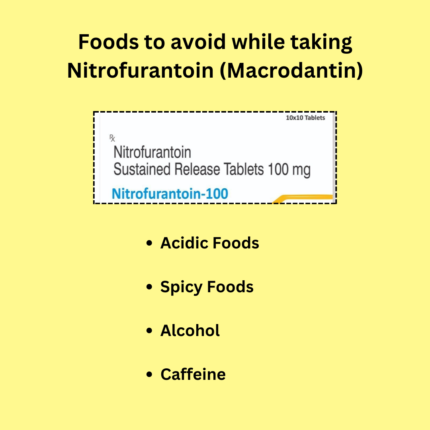

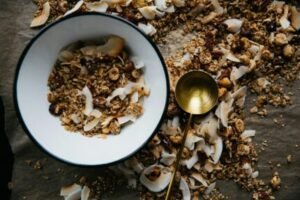

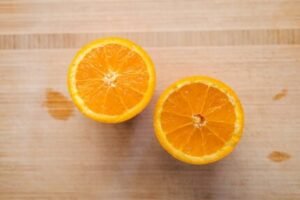

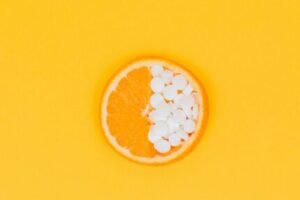
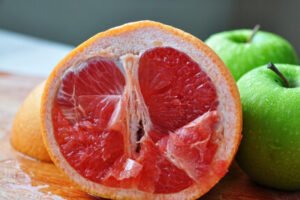
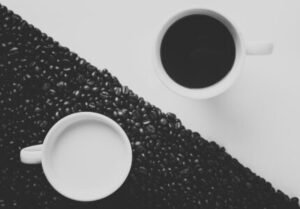
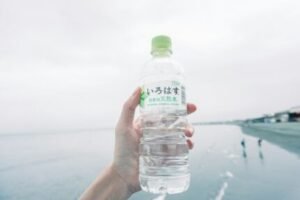
1 thought on “5 Foods to Avoid while taking Nitrofurantoin (Macrodantin)”
Comments are closed.